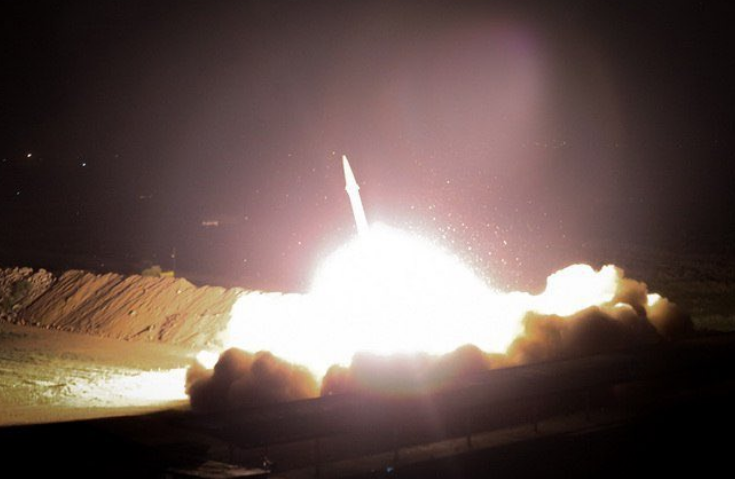Hezbollah warns people in Lebanon against scanning QR codes from Israeli leaflets
09/27/2024 / By Richard Brown

Hezbollah has cautioned people in Lebanon against scanning QR codes found on leaflets dropped by Israeli warplanes in several parts of the country. In a statement, Hezbollah’s media department confirmed that these leaflets had been distributed in the Beqaa Valley in eastern Lebanon.
“We strongly advise against opening or sharing any QR codes; they should be discarded immediately due to the significant risk they pose. These codes can access all the data on your devices and endanger your personal safety. We urge the public to remain vigilant,” the statement emphasized.
Since the day before the statement, Israeli attacks in Lebanon have resulted in nearly 600 deaths, including over 50 children and 100 women, and nearly 2,000 injuries, according to Lebanese Health Minister Firas Abiad.
“Most of the casualties in these attacks are unarmed civilians in their homes, contradicting the claims that fighters are being targeted,” said Abiad. (Related: Lebanon warns of “doomsday” response for West, Asia and Europe if Israel expands war.)
Hezbollah and Israel have been engaged in ongoing cross-border conflict since the onset of the Israeli war on Gaza. The conflict, which erupted following a Hamas-led cross-border attack on Oct. 7, has claimed over 41,400 lives, primarily women and children. The international community has raised concerns about the escalating strikes in Lebanon, warning that they could expand the Gaza conflict to a regional scale.
“The Zionist enemy is distributing leaflets with barcodes in the Bekaa region and may target other areas as well,” Hezbollah’s media office stated. “We urge the public not to scan or circulate these barcodes.”
The Lebanese political party and paramilitary group advised anyone who finds such leaflets to “destroy them immediately, as they are highly dangerous and capable of extracting all the information on your devices.”
Before launching this bombing campaign, Israel reportedly triggered thousands of pagers and electronic devices across Lebanon, an act that rights experts have condemned as a form of terrorism.
Reuters reported on Tuesday, Sept. 24, that Hezbollah’s statement did not clarify if anything else was written on the leaflets, and there was no immediate response from the Israeli military.
Israel claims its war is not with Lebanese civilians, only Hezbollah
Israeli Prime Minister Benjamin Netanyahu addressed Lebanese citizens on social media, stating: “Our war is not with you; our war is with Hezbollah.”
Netanyahu urged the Lebanese to “free yourselves from [Hezbollah leader Hassan Nasrallah’s] grip for your own safety.” He added, “Anyone with a missile in their living room or a rocket in their garage will not have a home.”
Later, in an English message, Netanyahu warned: “Get out of harm’s way, now.”
Meanwhile, residents of southern Lebanon have been receiving text messages and audio recordings from the Israeli Defense Forces (IDF), warning them to evacuate their homes and villages. Col. Avichay Adraee, the head of the IDF Spokesperson’s Unit’s Arab media division, shared similar messages on social media.
The massive civilian death toll has contradicted the IDF’s statements on the matter. United Nations High Commissioner for Refugees Filippo Grandi said the escalating chaos in Lebanon is “terrifying” and that the massive civilian death toll is “unacceptable.”
Grandi called for immediate political solutions to end the hostilities, and added that the indiscriminate Israeli airstrikes on Lebanon “are now relentlessly claiming hundreds of civilian lives,” including at least two UN aid workers.
The situation has gotten so unpopular for Israel that even United States President Joe Biden, addressing the UN General Assembly, emphasized that an all-out war “is not in anyone’s interest,” and that “a diplomatic solution remains the only path to lasting security.”
Watch this broadcast from Al Arabiya discussing how Israel is rejecting calls for a ceasefire in Lebanon.
This video is from the AllTheWorldsAStage channel on Brighteon.com.
More related stories:
Lebanon bans all pagers and walkie talkies on flights following deadly Israeli terror operation.
Japanese handheld radio maker denies link to exploding walkie-talkies in Lebanon.
How thousands of pagers became deadly weapons in Lebanon.
Sources include:
Submit a correction >>
Tagged Under:
big government, chaos, computing, conspiracy, cyberwar, Dangerous, data breach, deception, Glitch, hacking, Hezbollah, Holy War, information technology, Israel, Israel-Hezbollah conflict, Lebanon, national security, QR codes, terrorism, violence, WWIII
This article may contain statements that reflect the opinion of the author
RECENT NEWS & ARTICLES
COPYRIGHT © 2017 NATIONAL SECURITY NEWS





















